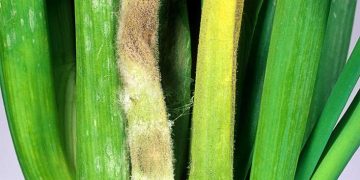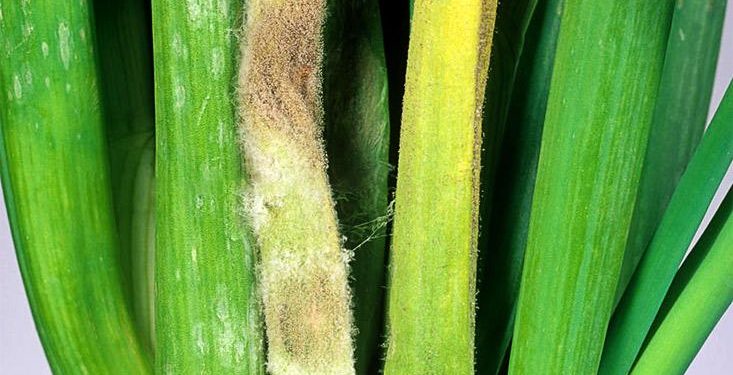DownyMildewControl #FungalDiseaseManagement #CropProtection #ResistantVarieties #FungicideResistance
Downy mildew is a fungal disease that affects various plants, including onions, garlic, and leeks. The disease is caused by the pathogen Peronospora destructor, which can quickly spread and cause significant crop losses if left untreated. Fortunately, there are various measures that can be taken to prevent and control downy mildew.
One of the most effective ways to fight downy mildew is by using resistant varieties of plants. Plant breeders have developed onion and garlic cultivars that are resistant to the disease, making them a valuable tool in downy mildew management. Additionally, cultural practices such as crop rotation, sanitation, and proper irrigation can help reduce the severity of the disease.
Another effective method to control downy mildew is through the use of fungicides. However, it is important to note that repeated use of fungicides can lead to the development of fungicide-resistant strains of the pathogen. To minimize this risk, fungicides should be used in conjunction with other control measures.
The development of downy mildew-resistant varieties and other control measures have significantly reduced the impact of the disease on onion and garlic crops. As a result, farmers can enjoy higher yields and better quality produce. Additionally, consumers can enjoy more abundant and affordable supplies of these staple vegetables.
Downy mildew is a serious threat to onion and garlic production, but there are effective ways to fight it. By using resistant varieties, cultural practices, and fungicides in a responsible manner, farmers can minimize the impact of the disease and continue to produce high-quality crops.































